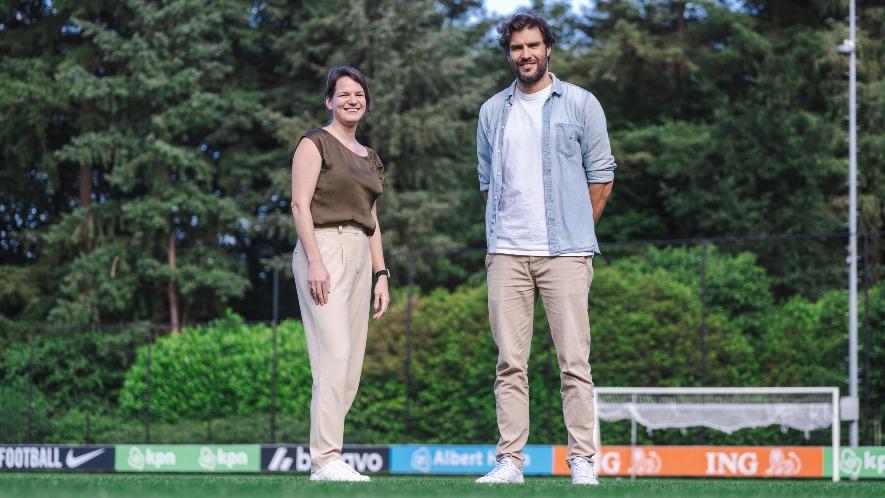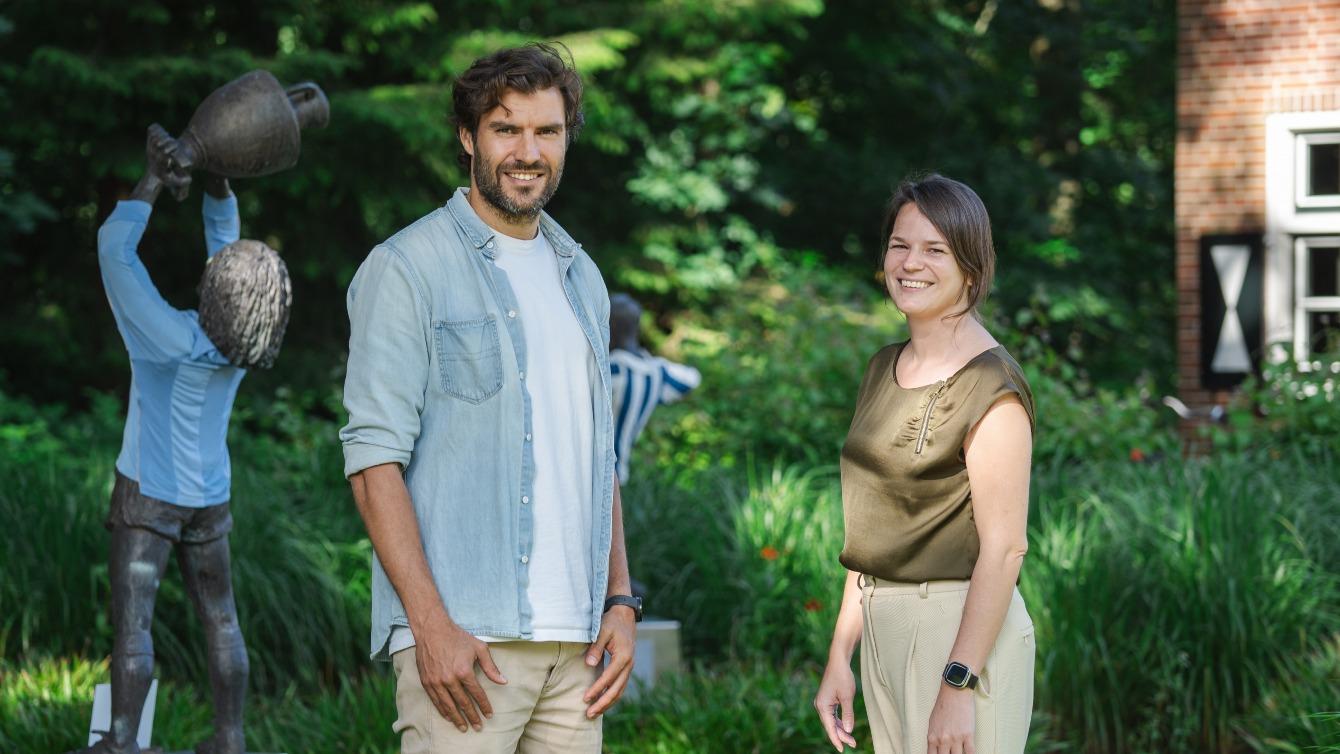Former chairman Jeu Sprengers once described the KNVB as 'the largest surrogate family home in the Netherlands'. With almost three thousand clubs and more than 1.2 million football players, its social impact is enormous. Not to mention the millions of television viewers. Research by PwC shows that football connects more than nine million Dutch people every year. This reach can be used to achieve ESG (Environmental, Social and Governance) goals both inside and outside the organisation of the football federation.
That is why PwC has been 'sponsoring' the KNVB since September 2023. Not with money, but with knowledge, as a strategic knowledge partner. One of the topics on which the KNVB and amateur clubs have already achieved a lot is sustainability. To help sports clubs become more sustainable, 'De Groene Club' (‘The Green Club’) was launched. ‘With a step-by-step plan, we help amateur clubs to make themselves future proof through sustainability,' explains Tim Hofman.
Sustainability from a different perspective
To do this, a Green Club advisor visits the clubs. 'For example, he or she looks at the club's energy bill, how many hours the field lights are on and how much water is being used. The advisor writes a report on what he or she has found. We then look at what savings are possible and feasible. Naturally, we start with the low-hanging fruit, such as replacing old energy-guzzling coolers.'
Something like installing a heat pump is in a different category, of course. Hofman: 'That's the problem many clubs face: how do we get the funding? That’s why the Green Club advisor works with the directors to look at subsidy options and helps with the application process. That saves a lot of money.'
Experience shows that when clubs see that they can save money, they are more likely to embrace sustainability, says Hofman. 'It’s not without reason that the Green Club has its slogan: High club funds, low greenhouse. This shows that sustainability is not only good for the environment, but also for the wallet.'
'In this way, you can really see sustainability in a different light. Sometimes you hear people say: we’re not allowed to do anything anymore, we can't eat meat, we can't fly. While sustainability is about making the world a bit nicer. Or rather, making it smarter. That's how I see it.'
Our football belongs to everyone
The figures speak for themselves. More than two thousand amateur clubs have already taken part, and since the start of the programme in 2019, they have collectively invested more than 48 million euros in LED lighting, solar panels and heat pumps, among other things. They have already saved 3.7 million euros; the electricity savings are equivalent to the consumption of more than 100,000 households.
The KNVB also wants football to be a place where everyone feels safe, where there is no place for discrimination and social exclusion. Under the motto 'Our football belongs to everyone', work is being done to achieve this. This ranges from promoting a diverse sports board to making football financially accessible to children from poor families. Hospitality is also a priority in professional football, and discrimination and football violence are combated.

Femke Helgers (PwC) and Tim Hofman (KNVB)
PwC's step-by-step roadmap
To streamline all these ambitions, PwC is supporting the KNVB through its five-step plan for a sustainable strategy, focusing now on the first steps. 'Step one is to map the playing field,' says Femke Helgers, sustainability strategy expert at PwC. 'What are the applicable laws and regulations that the KNVB has to deal with, what is the market like, what are the national and international developments, what are the partners doing?'
The second step is to carry out a so-called 'double materiality assessment'. Helgers: 'This is where we determine with which sustainability issues the KNVB has the greatest impact on people and the environment. What are the associated risks and opportunities? We look at the entire chain in which the KNVB is involved. Making this transparent can be quite a challenge. For example, is the clothing we purchase sustainably produced? On some topics it may seem that you as an organisation have less influence, but you are held accountable because you are linked to that impact through your suppliers. Think, for example, of the working conditions in the factories where sportswear is produced. So, you need to understand and engage your suppliers.'
Looking further into the future
Hofman is very satisfied with the strategic analysis that PwC carried out as a first step. 'Not only has our own organisation been analysed, but also, for example, amateur clubs. To give an example: If climate change continues, we will have more and more wet periods as well as very dry periods. Will we still be able to play football in the season we have now jointly decided on? These are also things that you can start to look at and have to think about.'
Contact us



















